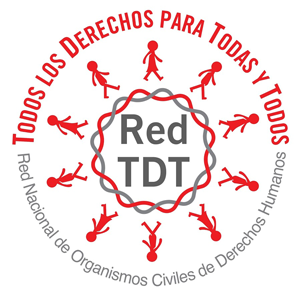What remedy should I seek?
As one prepares a public interest case, in addition to determining the rights which have been violated, it is important to think about what measures you want the court or dispute settlement body to take; put in legal terms, you must decide which “remedies” to seek. This should not be considered in isolation from the rest of the case.
In some cases there may be tension between what the person or organisation making the legal complaint hopes to achieve – for example, a change in the law – and what the victims of rights violations hope to get out of it – for example, compensation for the wrong suffered.
Defining the desired remedy is vital
When designing a PIL case, the decision which remedy to ask for should not be left to the very end or dealt with as a question of secondary importance.
The issue of what remedy to seek should be an intrinsic part of the whole case. The arguments used to justify the remedy sought should be just as strong as the arguments used to establish the violation.
In some cases, arguments on remedies are made when everybody is tired, characterised with the feeling that all there is to say has been said. Lawyers may give their clients high expectations regarding what the Court can do for them which are not realistic.
What is your main goal?
The remedy sought in every case must be determined by the broader objective of the case. You should start by determining what the case is intended to achieve, which could include the following:
- Changing provisions of the law which violate rights
- Getting clarity on the meaning of vague/unclear laws
- Ending an on-going violation
- Preventing the re-occurrence of the violation in future
- Preventing a violation before it occurs
- Creating public awareness about a violation
- Ensuring that victims of violations are restored to the position they were in before the violation
- Getting compensation for the victims
- Seeking accountability and acknowledgement of wrong doing
- Ending systemic violations
Each of the above objectives will dictate the type of remedy sought.
If the aim is to create public awareness, asking for a large sum of compensation could be a bad idea, as the public may think the case is only about money and not about establishing an important principle.
A negative remedy such as a prohibitory injunction/interdict (a court order to stop a certain action) may be appropriate if the object is to halt a violation yet inappropriate if the goal is to procure compensation.
Additionally, a simple mandatory injunction may be inappropriate for ending systemic violations, which may require more structured remedies.
For these reasons, once you establish that a violation exists and are thinking of bringing a case, you should immediately answer the question: What do I want to achieve?
In some cases, the answer to this question could even be that litigation is not the most appropriate strategy because it cannot deliver the required outcome.
Yet, the choice of outcome will very much determine how the case itself should be argued and, in some instances, against whom and on whose behalf the case should be brought.
For example, it may be hard to get individualised remedies if the objective is to challenge systematic violations. In some cases a choice can be made not to demand compensation for the individual on whose behalf the case is brought, but to use his or her situation to demand wider reform.
Preparing arguments for the remedies
Arguments must be prepared to convince the court that the remedies asked for should be granted. Even in a simple civil case seeking damages, arguments are usually made to, for instance, prove the amount of damages suffered.
It is even more important to prepare good arguments if a public interest litigation is asking for a particularly strong or unusual remedy. A remedy such as a simple declaration that the law was broken will not require such strong arguments as asking the court to order the state to change policy, stop the implementation of a programme or even change or halt the application of legislation.
Follow up on remedies
When preparing a case, it is important to plan the strategies that will ensure that a remedy granted by the Court is actually implemented. This means identifying the persons or institutions responsible for the implementation of the remedy and working out ways of ensuring that they act appropriately.
¿Quienes somos?
Action 4 Justice es un grupo de ONGs unidas para impulsar el litigio de interés público a nivel mundial como un medio de obtener justicia social.
APRENDER MÁSNUESTROS MIEMBROS
- Oxfam
- ASF
- PILAC
- Greenpeace
- Transparency International
- IHRDA
APOYANOS
Buscamos alianzas con organizaciones y comunidades en diversas partes del mundo. Únete a nuestra red, o participa como voluntario/a.
APRENDER MÁS
